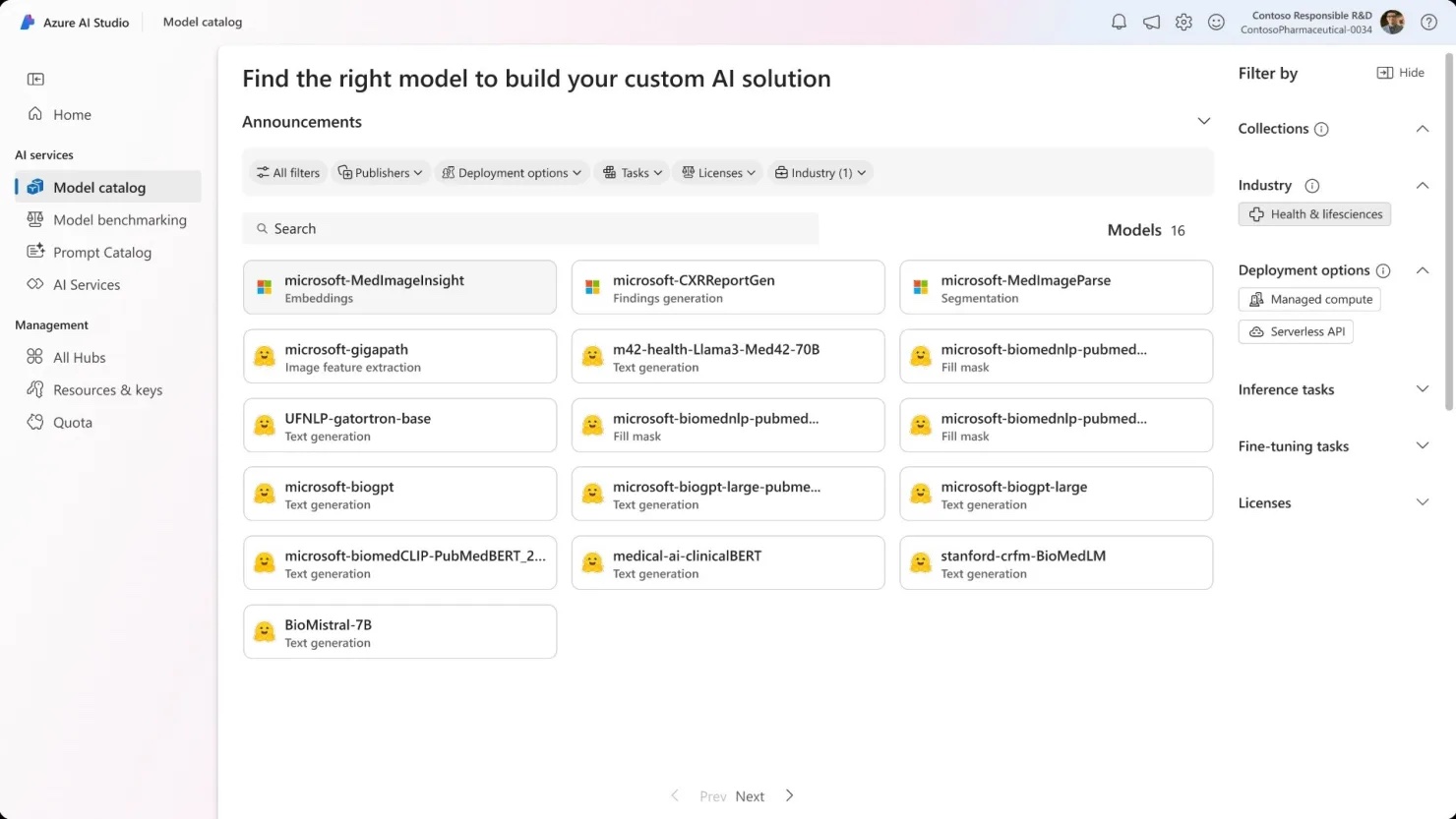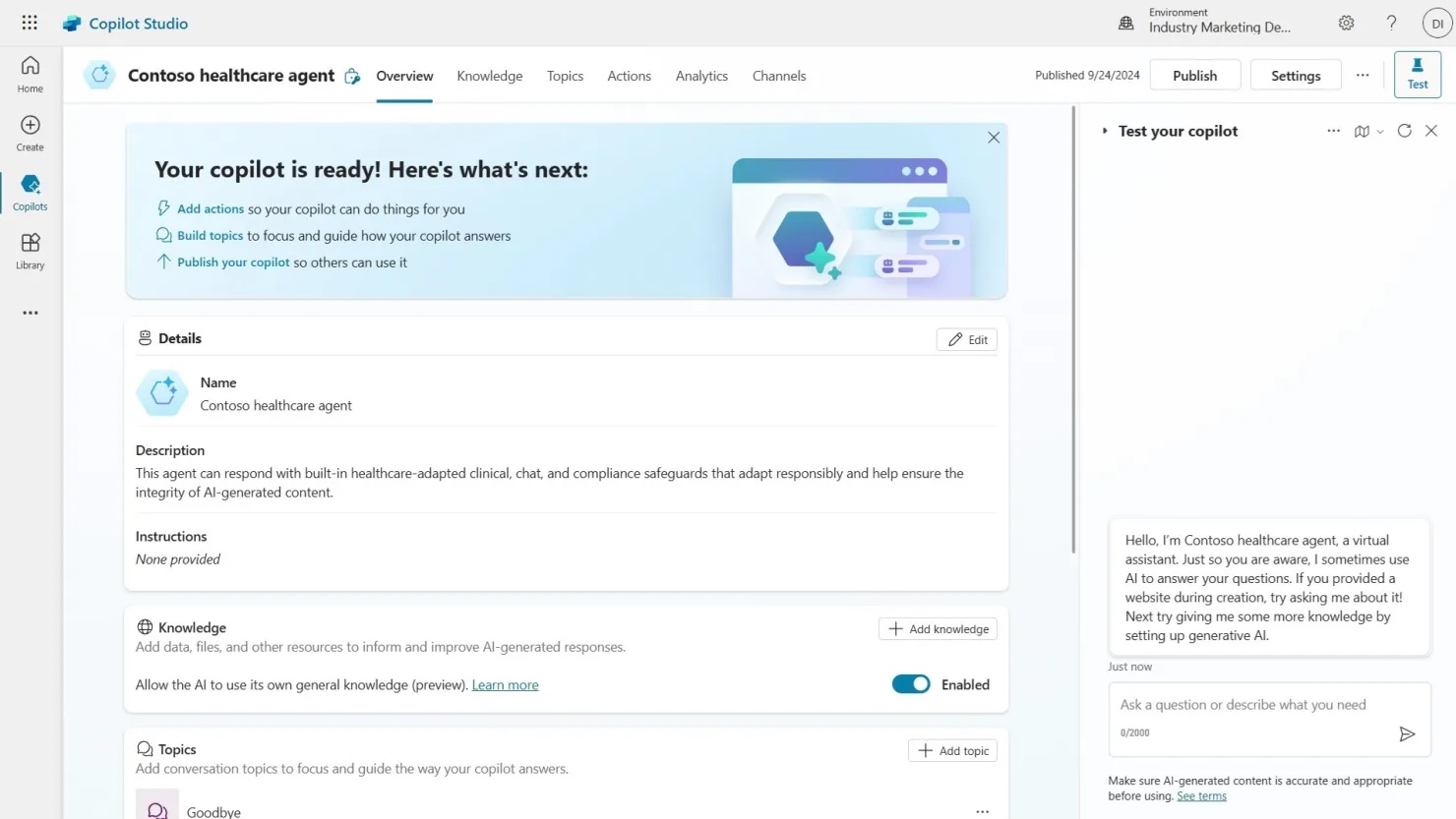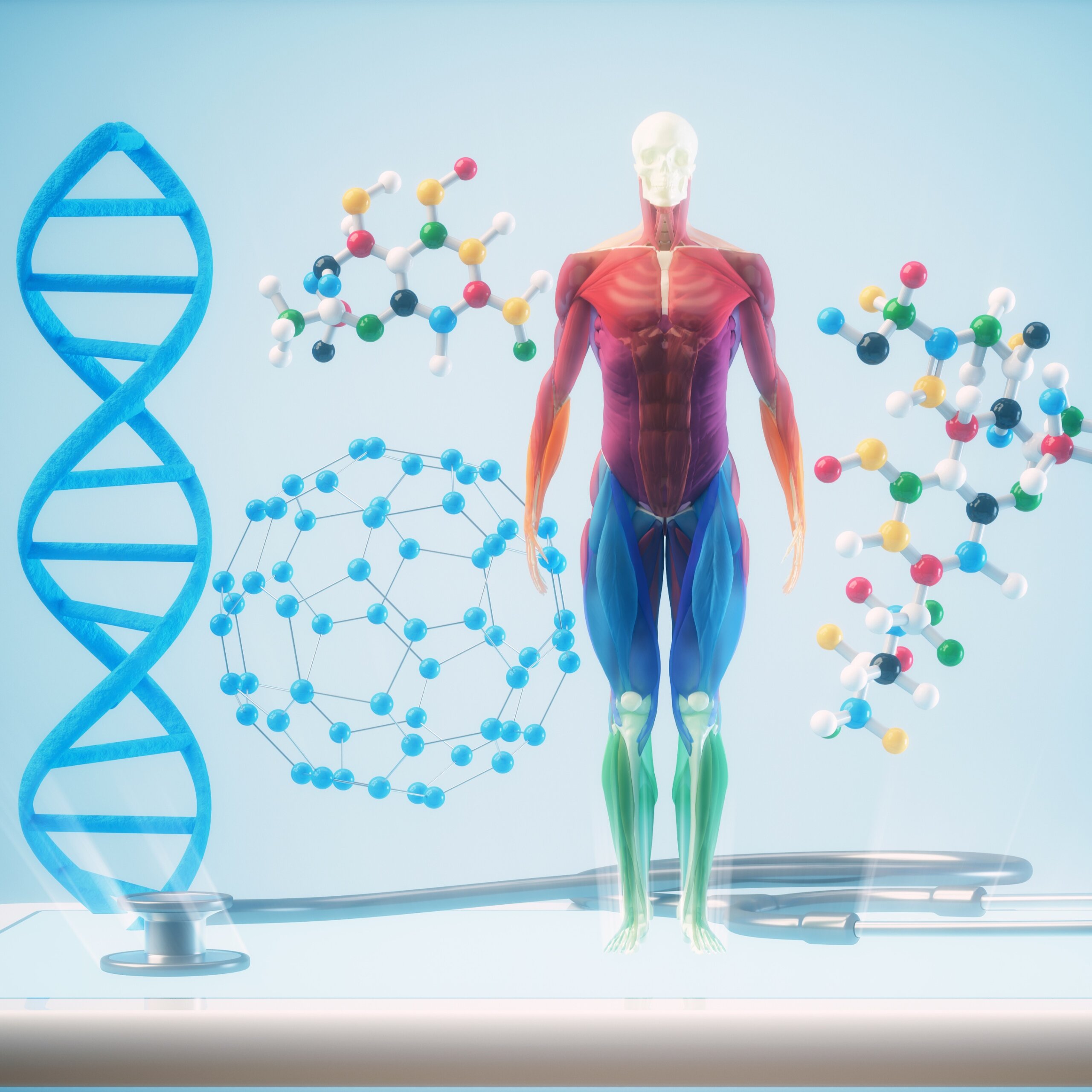On Thursday, Microsoft announced a range of AI tools to streamline tasks and systems for the medical community. Within this AI bundle, Microsoft launched a collection of medical imaging models, a healthcare agent service, and an automated documentation solution for nurses.
A 2022 report from the Office of the Surgeon General revealed that nurses spend 41% of their time on the job in documentation. Microsoft’s newest AI offerings aim to automate these administrative tasks and allow clinicians to focus on patient care. Mary Varghese Presti, vice president of portfolio evolution and incubation at Microsoft Health and Life Sciences, informed reporters in a prerecorded briefing earlier this week that “By integrating AI into health care, our [Microsoft’s] goal is to reduce the strain on medical staff, foster collective health team collaboration, and enhance the overall efficiency of healthcare systems across the US.”
Data suggests that approximately 80% of hospital visits include some form of an imaging exam to supplement accurate diagnoses. Microsoft has dipped its toes into this vital aspect of diagnosis with a collection of open-source multimodal AI models that can analyze medical images, clinical records, and genomic data. In partnership with Providence Health & Services, Microsoft has developed a whole-slide model that improves mutation prediction and cancer subtyping.
Sara Vaezy, chief strategy and digital officer at Providence, told CNBC in an interview that “Getting a whole-slide foundation model for pathology has been a challenge in the past… and now we’re actually able to do it.” These models are available on Microsoft’s Azure AI Studio.

Microsoft has also leveraged Copilot Studio to allow healthcare facilities to customize their own AI agents. These agents will serve as the first line of screening for patients when they walk into a healthcare facility. Microsoft expanded on this, stating, “Organizations can create agents equipped with healthcare-specific safeguards. When an answer contains a reference to clinical evidence, the source is shown, and a note indicates if the answer is AI-generated. Fabrications and omissions are also flagged.”
The third and final AI tool is in partnership with Epic Systems. It aims to automate the documentation process that nurses are required to update. Though Microsoft’s Nuance already offers a documentation tool for doctors called DAX Copilot, Microsoft is working with Stanford Health Care, Northwestern Medicine, and Tampa General Hospital to develop a similar tool for nurses.

“The nursing workflow is very different from that of physicians, and any solution developed for nurses needs to integrate with the way they work,” Presti said during the briefing. “Our team has spent hours shadowing nurses during their shifts to see how they carry out their tasks and to discover where the greatest points of friction exist throughout their day,” Microsoft told CNBC on Thursday.






